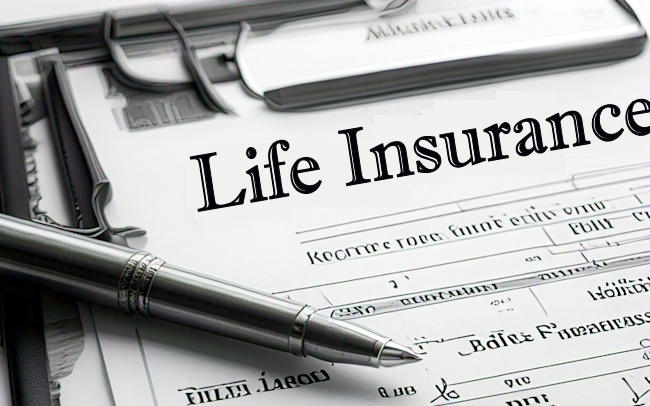At the height of your youth, you may feel invincible to some extent. This is especially true for single people in their 20s or 30s who are free from the physical, emotional, psychological, or financial responsibilities of having a family and are at the peak of health even after some questionable life choices when it comes to their diet and other everyday habits.
That sense of reckless abandon when it comes to dealing with finances and health can make people shortsighted when preparing for their future. Young people these days tend to splurge on the latest gadgets, fashion, or on eating out (which is costlier than buying ingredients and prepping your own food) and seem deliberately oblivious of the risks to their finances when they make these purchases.
Maybe you are at a stage in your life where you are starting to realize that you cannot afford to take it easy any longer. At this point, you are fully aware that life is filled with so many surprises—some good and some bad.
You might have seen this scenario play out and happen to some people that belong to your circle, or to some of your very own loved ones. One day they are up and about, seemingly healthy, making waves in their careers, starting to build their own family, or just quietly living their lives day by day when disaster suddenly strikes.
When Disaster Strikes
They may have found themselves suddenly diagnosed with a life-threatening illness, have had an accident, or were struck with a massive disaster like an earthquake, wildfire, tornado or hurricane that laid waste to their properties. Maybe they have lost a family member, rendering them ill-prepared and inept at dealing with their sudden circumstances.
It is impossible to accurately predict when an illness will strike, an unfortunate accident will occur, or a catastrophe might incapacitate you or worse, put your life to an abrupt end. Dealing with the unknown could be quite daunting, but one thing you can do to prepare yourself and the people you care about in case any of those misfortunes is to purchase insurance. Life insurance will help provide for your heirs, health insurance helps you afford healthcare, homeowners insurance helps cover the loss or damage to your home and contents, etc. Each of these types of insurance helps to spread the cost of damage over a large group of people so the effects on the affected are minimized.
The simple answer to the question, “when is the right time to get insurance,” is, no doubt, “As early as possible.” Getting life insurance is one key to protecting your family’s finances.
A life insurance policy is a financial product that is cheapest if bought when you are younger and not yet saddled with enormous pressures. Premiums (the amount of money you invest or pay the company to cover your policy) are lower.
What Life Insurance is and How It Could Work for You
The most basic explanation is that you purchase life insurance to make sure that your surviving dependents are financially protected in the event of your death. If you are a life insurance policyholder, a death benefit is given to your beneficiaries, in consideration with the payments you have made to your insurer.
A life insurance agent can help you to determine which type of policy will best cater to your present and future needs. Depending on the results of their evaluation and assessments, as well as the ideal timeline in achieving your financial milestones, financial advisors will be able to offer you different kinds of policies such as whole life insurance, term life insurance, universal life insurance, and variable life (VUL) life insurance policies. It is best to take some time learning about the plusses and minuses of each type before speaking to a salesperson though because they are sometimes motivated by the commissions they can earn.
When you buy a life insurance policy, you get to specify your beneficiaries and the amount of death benefit based on the needs of your heirs. The extent of the coverage, as well as determining if insurable interest is applicable in your policy, is based on your chosen insurance provider’s underwriting requirements.
How Life Insurance Premiums are Determined
The amount of premium varies from client to client. The price is determined based on statistics set by the underwriting department of the insurance company. Some variables at play include the cost of insurance, policy maintenance fees, and estimated cost to cover death expenses.
Your age, medical history, lifestyle habits, and inclination to other specific personal risks are also taken into account when the insurance provider sets up your premium payment terms.
Life Insurance is a Flexible Financial Product
Life insurance is a flexible financial tool. There is no limit to the ways your dependents can use the benefits from the policy. Some of the different expenses covered by life insurance include end-of-life expenses like funeral costs, cremation, or burial services. The claimed amount can even pay for debt you might have left behind, such as outstanding loans or payments.
Policyholders are advised to do regular yearly consultations with their brokers to help reassess their insurance needs when a significant life change happens such as marriage, divorce, birth of offspring, death in the family, or following a large purchase like a family car or your own home.
Buying life insurance as soon as you can is a great move to help secure your wealth and provide for your family. If you already have a steady stream of income, consider contacting an agent ASAP to know your life insurance options.
You might also like:
- Recovering from the Unexpected: 4 Tips for Financially Dealing with a Medical Condition
- The Importance of Insurance
- Health Insurance Inflation
- The Effects of Inflation on Life Insurance




